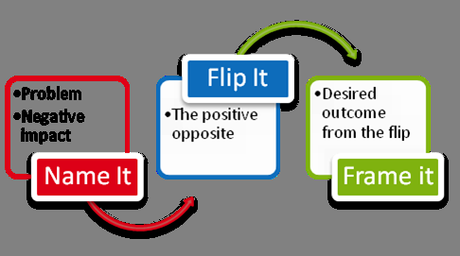
Are Your Conversations Really Productive?
Whether you're in a leadership position or simply a member of a team, you have the power to fuel productive and meaningful engagement, which ultimately will help you shine. Two simple practices are all you need.
Fuel Productive and Meaningful Engagement
How often do your workplace conversations spin around problems, complaints, or talking trash about disengaged and unproductive colleagues? You can change that in a heartbeat! Here are two simple practices to use any time you want to create a conversation worth having.
Ask generative questions.
Asking questions that generate conversations about what you want are far more productive and engaging than focusing on what you don't want. Instead of trying to fix a problem, focus on the desired outcome. "What is it we are trying to accomplish here?" shifts the focus from the problem to a broader context, which means expanding possibilities for solutions. So often we start coming up with solutions without clarifying what we're trying to do. Getting really clear on what we want opens the door for greater creativity and innovation.
Asking questions for which you don't know the answer invites people to share their perspectives, their knowledge, and their ideas. Anytime someone thinks they have all the answers, instead of getting frustrated, ask questions that make the invisible visible. Discover the assumptions, limiting beliefs, and the potential blind spot that keep a person or group from truly being innovative. Doing this will make you a valuable asset for your organization!
Create a positive frame.
When you are the person initiating the conversation, make sure you set a positive tone and direction. Share your intention for "moving towards" desired outcomes instead of spinning around issues. Flipping is tool that helps you turn a problem or an issue into a positive frame, which will inspire a conversation that is both invitational as well as inclusive.
Flipping
This is a simple three-step approach to move from a negative, deficit-based frame to a positive frame, allowing you to work towards solutions by engaging in conversations worth having. The three steps are:
- Name It. What is the problem, complaint, or the thing you don't want?
- Flip It. What is the positive opposite, the thing you do want?
- Frame It. What is the positive impact if the flip is true; what is the desired outcome?
Talking Trash
The most destructive conversations found in the workplace are those where people are complaining or just trashing their colleagues for one reason or another. For some reason, these kinds of conversations make us feel like we are bonding and securing our place in the group. In fact, they are divisive and create fractions of "us" against "them." If someone tries to bring you in to such conversations, ask them questions to help shift towards a conversation worth having-one that will ultimately strengthen relationships among the whole. For example, Sam comes up to you in the break room and starts badmouthing a colleague: " Tom is so frustrating. I'm so tired of listening to him go on and on without ever thinking we might have something to say. Aren't you just over it?"
You might be, but instead of agreeing, ask, " Have you tried sharing your ideas with Tom? I haven't, but I'm thinking I should. He actually might be interested and just doesn't know any of us have different ideas." If your colleague continues down the negative pathway saying, " That would be a waste of time. You know he thinks he's got all the answers." You can reframe the conversation by suggesting, " Let's not write him off before we even give him a chance. I'd be willing to go with you and let him know we've got some ideas we'd like to share, ideas we think will help move the department forward. Are you willing to give him a chance?"
Continuing to focus on collaboration and what's best for the department, all the while using questions to uncover hidden assumptions and limiting beliefs is magic. It can change office dynamics in a heartbeat!

Problem Solving
Typical problem solving begins with root cause analysis. This can zap the energy and vitality from a room like nothing else. The more you talk about it, the bigger the problem gets. Instead, create a positive frame and inquire into it. You are still focused on resolving the issue, but your conversations actually energize and enliven people. For example, imagine the issue is high turnover. When you begin to identify symptoms and reasons for high turnover, you're likely to start surfacing everything that is wrong and demoralizing in your organization. Such conversations might even encourage more turnover.
Instead, flip the problem to its positive opposite: strong retention. Then ask yourselves: What would ensure high retention? What's our desired outcome? One healthcare organization's answer was Being Here and Loving It. This was their positive frame. Your inclination will be to start brainstorming what you can do to create an environment where everyone loves being there. STOP! Instead, do some research!
Start asking generative questions:
- Where and when in our organization do people love being here?
- Is there a department that has high retention? What's going on there that makes employees stay?
- What would employees say if we asked them what would make them love being here?
If you ask these questions BEFORE you brainstorm, you're going to have a lot of real, hardcore data about what already works and about what employees actually want. In addition, simply asking employees these questions gives them a sense that someone cares and something good might come of it.
Anytime, Anywhere, Any Situation
These two practices can be use anytime and anywhere to create conversations that support connection and strong relationships, resolve even the most complex challenges, and foster strategic conversations that help teams and organizations flourish. To learn more about how to build your capacity for conversations worth having, check out Conversations Worth Having: Using Appreciative Inquiry to Fuel Productive and Meaningful Engagement. You can download the Preface and Introduction for free at www.conversationsworthhaving.today
This guest post was authored by:
Jackie Stavros

Cheri Torres


Ms. Career Girl was started in 2008 to help ambitious young professional women figure out who they are, what they want and how to get it.

